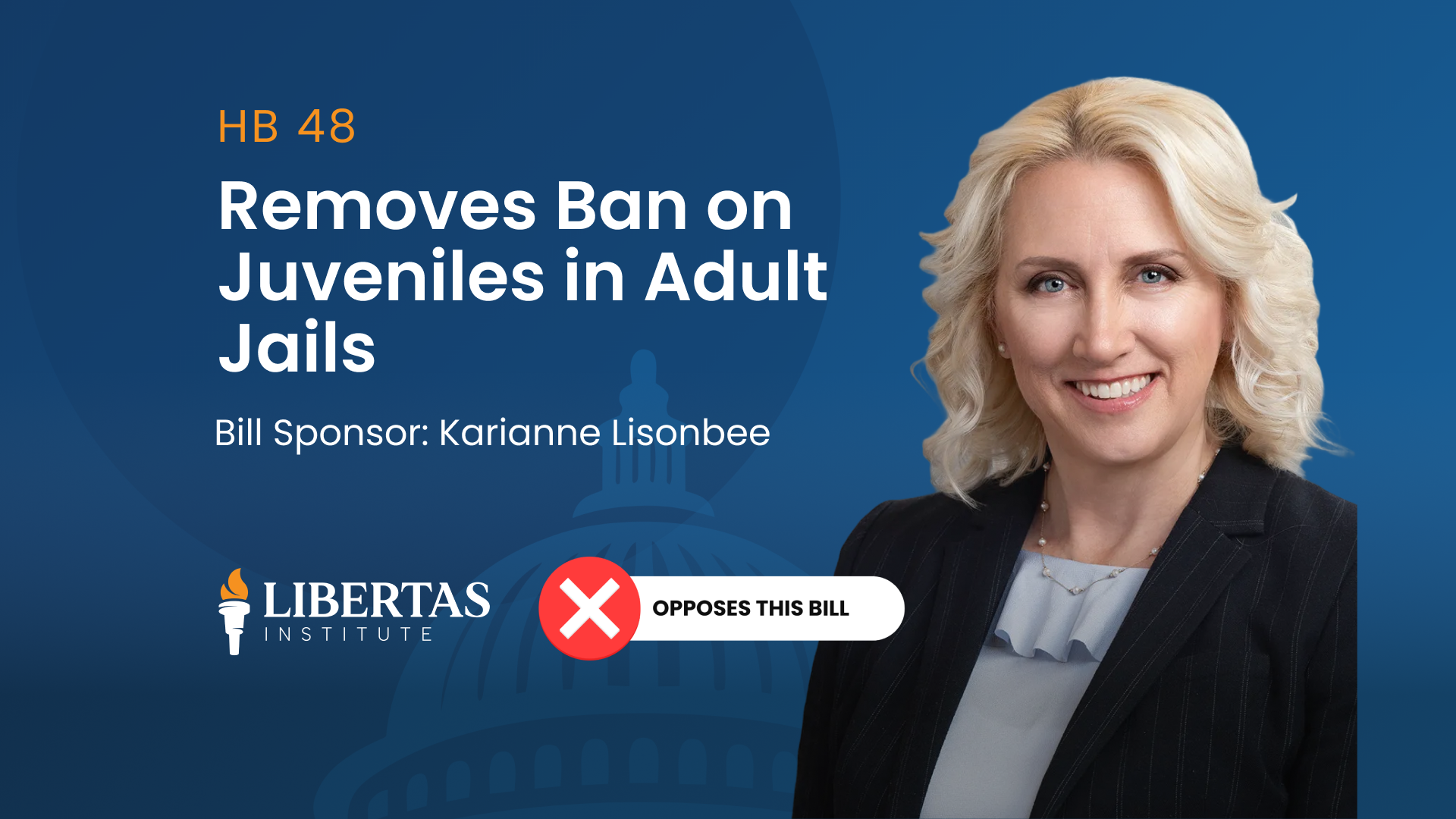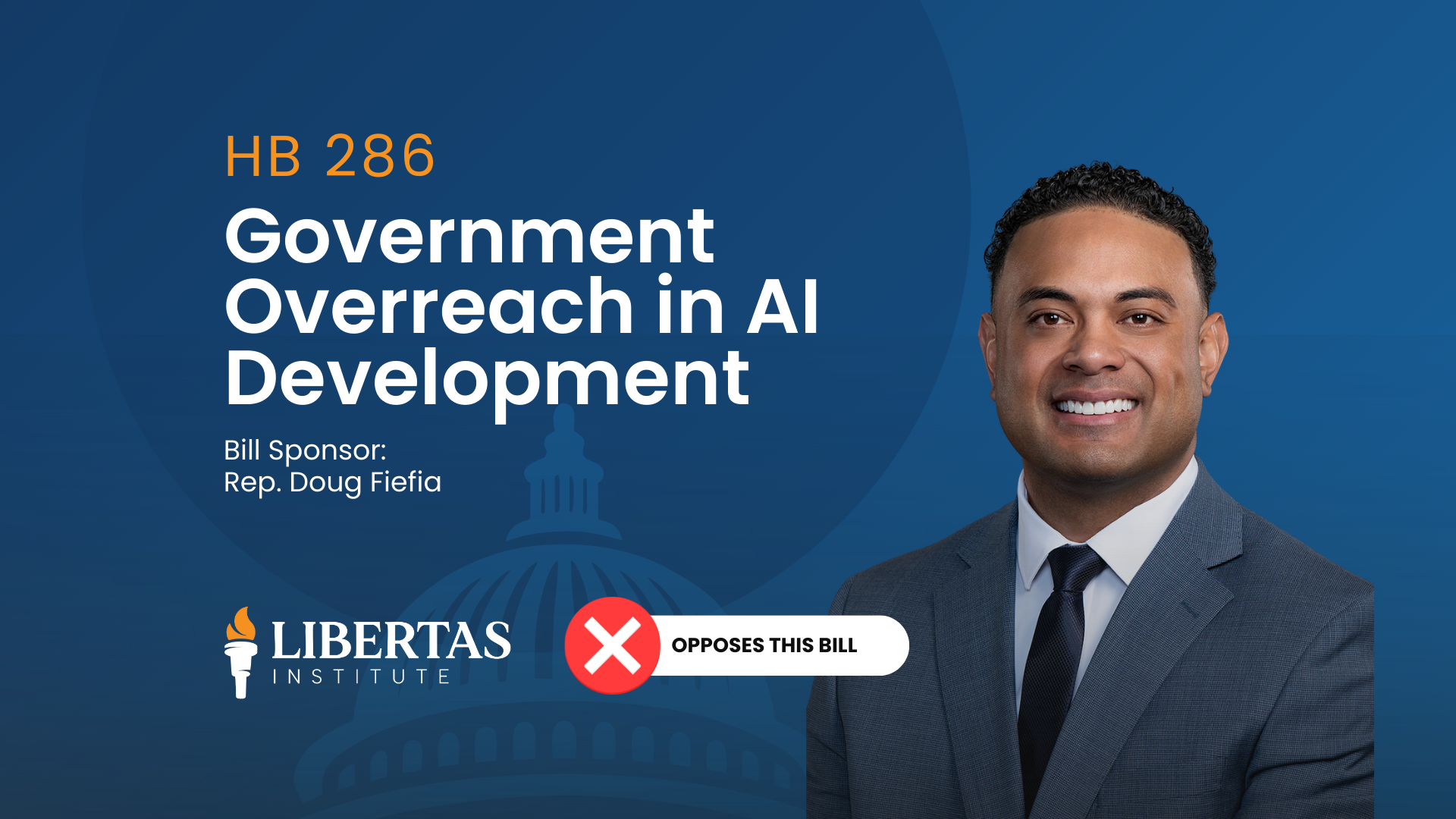To track the status of this bill, find it on our Legislation Tracker. Click here to contact the sponsor of the bill to share your thoughts, or click here to email your Senator and Representative about it.
Libertas Institute supports this bill
The COVID-19 pandemic has prompted a slew of executive orders and the exercise of governmental powers across the country, including in Utah. Declaring an emergency in Utah, by law, allows the Governor to assume various additional powers, including suspending laws passed by the Legislature. Such orders also, for a public health crisis, empower public health officials to wield near-dictatorial powers to control people and property without due process.
The Utah Legislature elected not to renew one of Governor Herbert’s executive orders last year with the intention to have the order expire along with the executive branch’s exercise of its increased powers. However, Herbert circumvented the Legislature on tenuous legal grounds by simply issuing a brand new emergency declaration that effectively duplicated the previous one.
This allowed the Governor to basically ignore the Legislature and continue to exercise augmented powers. The existing emergency laws contemplated short-term emergencies that need a dynamic response from the executive branch where the Legislature would not have time to review, discuss, and reform laws as necessary. However, a prolonged pandemic and the government’s response to it does not meet these criteria at all. The Legislature clearly intended for the emergency powers to expire, and the Governor basically ignored them and continued claiming these powers as his own.
Senator Evan Vickers is sponsoring Senate Bill 195, which creates a number of new restrictions on public health orders and declared emergencies, limiting the executive authority and imposing significant legislative oversight and control into the process.
Among other things, SB 195 does the following:
- Allows the Legislature to terminate a public health order from the state health department and allows a county council to do the same for a local health department;
- Changes the $10,000 penalty for violation of a health order from a mandatory punishment to a discretionary/optional one and applies it only to companies/organizations;
- Limits the penalty for individuals who violate a public health order to a maximum of $150 per violation;
- Requires the health department to notify legislative leadership 24 hours in advance of their declaring a public health emergency;
- Limits public health emergencies to a period of 30 days (unless terminated earlier by the department or the Legislature);
- Allows only the Legislature to extend a public health emergency beyond the 30-day limit;
- Prohibits the department from declaring a new public health emergency for the same illness or occurrence as the previous one unless there are exigent circumstances (a “significant change” that “substantially increases the threat to public safety or health”) that require a new one to be declared by the department;
- Requires a public legislative meeting to evaluate the need to extend a public health emergency at the request of the health department, allowing testimony from the public;
- Prohibits a restriction on religious gatherings that exceeds a restriction that applies to any other public gathering;
- Applies all of the above criteria and restrictions to county public health departments and county councils; and
- Prohibits a local health department from issuing a restriction on people’s activity without the approval of the county executive.
These reasonable reforms will help minimize executive abuse in the future and ensure that the people’s representatives have the ability to protect our rights while balancing them against any perceived emergency.




